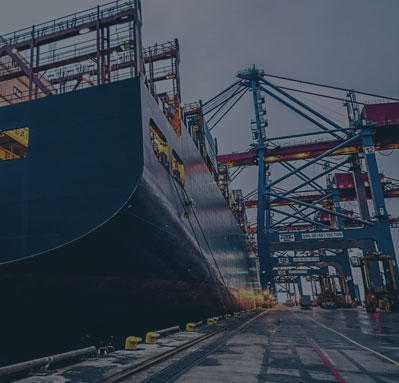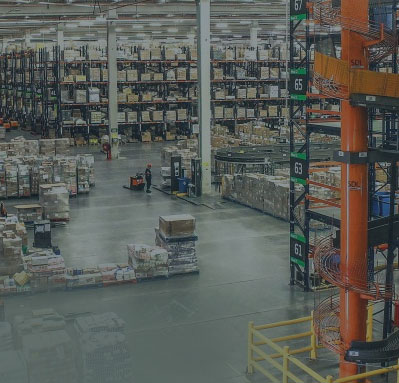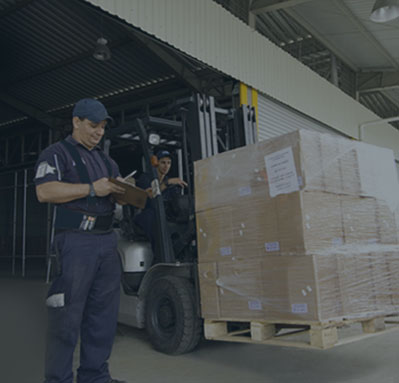The UAE is a major hub for international trade, and obtaining an import-export license is crucial for businesses looking to capitalize on the lucrative opportunities available in this market. The process, while straightforward, involves several steps that need to be carefully followed to ensure compliance with local regulations. This comprehensive guide will walk you through the steps to obtain an import-export license in the UAE, ensuring you are well-prepared for the process.
Understanding the Importance of an Import Export License
An import-export license is essential for businesses involved in trading goods across borders. This license allows companies to legally import goods into the UAE and export them to other countries. Without this license, businesses cannot engage in international trade activities, which can severely limit their growth and market reach. Additionally, having a license demonstrates to partners and clients that your business operates within the legal framework of the UAE, enhancing your credibility and trustworthiness.
Initial Steps: Choosing the Right Business Structure
Before applying for an import-export license, it is crucial to decide on the appropriate business structure. The UAE offers several options, including Free Zone companies, Mainland companies, and Offshore companies. Each structure has its own set of advantages and regulatory requirements.
Free Zone companies benefit from tax exemptions and 100% foreign ownership, making them attractive for international traders. They also offer streamlined procedures and various incentives designed to foster business growth.
Mainland companies, on the other hand, offer greater access to the local market but require a local sponsor. This local sponsor typically holds a 51% share in the business, which can influence the company’s operations.
Offshore companies are ideal for businesses looking for a tax-efficient structure but are restricted from conducting business within the UAE. They are primarily used for holding companies, asset protection, and international trading without a physical presence in the UAE.

Selecting the Appropriate Free Zone
If you decide to set up your business in a Free Zone, choosing the right one is a critical step. The UAE boasts numerous Free Zones, each catering to specific industries and offering unique benefits. Here are some of the prominent Free Zones and what they are known for:
- Jebel Ali Free Zone (JAFZA): Renowned for logistics and trade, it is one of the largest and oldest Free Zones in the UAE.
- Dubai Multi Commodities Centre (DMCC): Ideal for commodities trading, especially in gold, diamonds, and tea.
- Dubai Airport Free Zone (DAFZA): Known for aviation, logistics, and technology companies, it offers proximity to Dubai International Airport.
- Sharjah Airport International Free Zone (SAIF Zone): Popular for light industrial units and a variety of businesses due to its competitive costs.
- Abu Dhabi Global Market (ADGM): Specializes in financial services and innovation, providing a robust regulatory framework.
- Ras Al Khaimah Economic Zone (RAKEZ): Supports a wide range of industries, from manufacturing to education, and is known for its cost-effective solutions.
- Ajman Free Zone: Focuses on small and medium-sized enterprises (SMEs) and offers cost-effective setup options.
- Fujairah Free Zone: Known for logistics, trading, and light manufacturing, with easy access to Fujairah Port.
Research the Free Zones that align with your business activities and assess their facilities, costs, and regulatory environment. Selecting the right Free Zone can provide significant advantages and streamline the licensing process.
Registering Your Business
Once you have selected the business structure and Free Zone (if applicable), the next step is to register your business. This involves several steps, including reserving a trade name, preparing the necessary documentation, and submitting an application to the relevant authorities. The documentation typically includes a business plan, passport copies of shareholders, and a lease agreement for your office space. It is important to ensure all documents are accurate and complete to avoid delays in the registration process. After submitting the application, the authorities will review it and issue a business license upon approval.
Applying for the Import Export License
With your business registered, you can now apply for the import-export license. This process involves submitting a detailed application form to the relevant government department, such as the Department of Economic Development (DED) for Mainland companies or the respective Free Zone authority. Your application should include information about your business activities, ownership structure, and the types of goods you plan to trade. Additionally, you may need to provide financial statements, a bank reference letter, and proof of insurance coverage. Once your application is reviewed and approved, you will receive your import-export license.
Meeting the Customs Requirements
To operate legally, businesses must comply with UAE customs regulations. This involves registering with the UAE Federal Customs Authority and obtaining a customs code. The customs code is essential for processing import and export transactions and ensures your business adheres to all legal requirements. To obtain a customs code, you must submit an application to the Federal Customs Authority, along with your trade license, import-export license, and other relevant documents. Once approved, you will be issued a unique customs code that must be used for all your import and export activities.
Understanding the Import Export Procedures
Familiarizing yourself with the import-export procedures in the UAE is vital for smooth operations. The process involves several steps, including documentation, inspection, and payment of duties and taxes. Importers must submit a bill of entry, commercial invoice, packing list, and certificate of origin, among other documents. These documents are used by customs authorities to assess the goods and determine applicable duties and taxes. Exporters must provide similar documentation and comply with the destination country’s regulations. Understanding these procedures helps ensure compliance and avoid potential delays or penalties.
Working with an experienced agent can greatly simplify the import-export process. Agents are well-versed in local regulations and customs procedures, which can help streamline documentation and inspections. They can also assist in navigating any legal complexities, ensuring that all paperwork is accurate and complete. By leveraging their expertise, businesses can avoid common pitfalls and ensure a smoother and more efficient trading experience.

Complying with Regulatory Requirements
Businesses must comply with various regulatory requirements to maintain their import-export license. This includes adhering to safety and quality standards, following environmental regulations, and ensuring accurate record-keeping. The UAE has strict regulations to prevent the import and export of prohibited or restricted goods. It is essential to stay updated on these regulations and ensure your business activities are in compliance. Regular audits and inspections may be conducted by authorities to verify compliance, and non-compliance can result in fines or suspension of your license.
Learn More: Import and Export Restrictions and Prohibited Items in the UAE
Benefits of Having an Import Export License
Obtaining an import-export license offers numerous benefits to businesses. It allows legal trading of goods across borders, providing access to international markets and growth opportunities. A license enhances your business’s credibility, attracting partners and clients. It also enables you to take advantage of trade agreements and government incentives, reducing costs and increasing profitability. Additionally, having a license ensures compliance with local laws, minimizing the risk of legal issues and penalties.
Overcoming Common Challenges
While obtaining an import-export license in the UAE is a straightforward process, businesses may face some challenges. Navigating the regulatory landscape, preparing accurate documentation, and meeting compliance requirements can be complex. Additionally, businesses may encounter language barriers or unfamiliarity with local customs procedures.
Working with experienced consultants or legal advisors can help overcome these challenges. They provide valuable guidance, streamline the application process, and ensure compliance with all regulatory requirements. Additionally, these professionals can offer insights into local business practices and help you navigate any linguistic or cultural barriers. By leveraging their expertise, businesses can mitigate risks and ensure a smoother, more efficient licensing process.
Unlocking Growth Opportunities with an Import-Export License
Obtaining an import-export license in the UAE is a crucial step for businesses looking to engage in international trade. By understanding the importance of the license, choosing the right business structure, and following the necessary steps, you can successfully obtain the license and unlock significant growth opportunities. Complying with customs regulations, leveraging trade agreements, and seeking expert assistance can further enhance your business operations.
At Cargoline, we specialize in providing comprehensive logistics solutions and support to businesses navigating the complexities of international trade. Contact us today to learn how we can help you obtain your import-export license and thrive in the global market.







